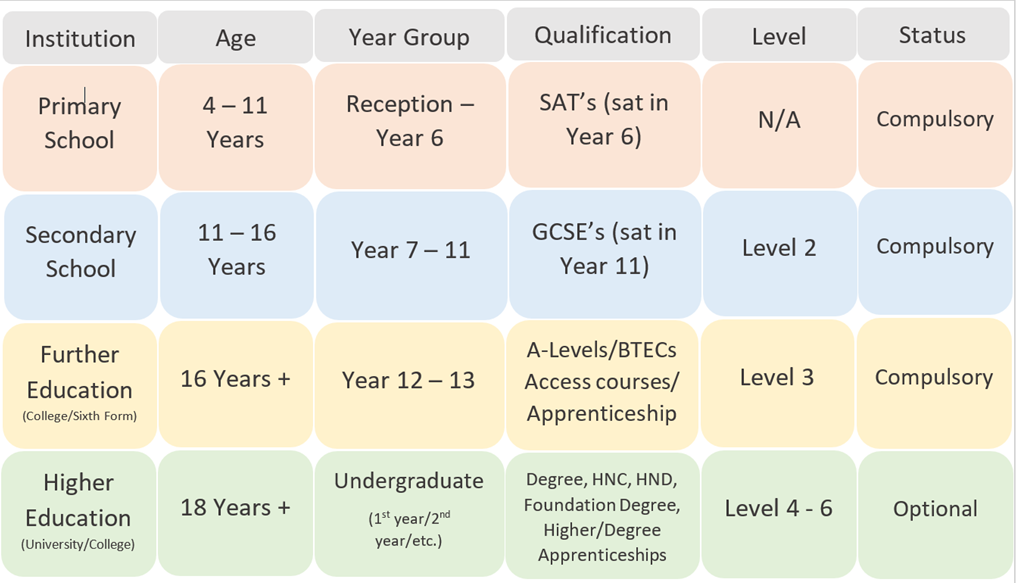
What is higher education?
Higher education (or HE for short) is the continuation of learning after you’ve gained your further education qualifications at college or sixth form. Sound a little bit confusing? Don’t worry, it can be a lot to get your head around.
Let’s make things simple. Take a look at the chart below to see where you are now and where HE fits into it all:

You’ll see that right now, you are in secondary school. When you get to Year 10 and Year 11, you’ll sit your GCSEs. Then, when you’re about 16, you’ll move onto further education at a college or a sixth form. These years are compulsory and you must stay in some form of education until you are 18.
Once you’ve completed your further education qualifications, you then have the option to go on to higher education. There are loads of different qualifications that you can complete at HE institutions, and normally these will be taught at universities or colleges.
Understanding HE
There are a lot of new terms and phrases that come along with higher education and we realise that this may get a little confusing at times. That’s why we’ve made a jargon buster full of important words and phrases that you can look at if there’s ever something you don’t understand or can’t remember from your Gateways visits. You can find the jargon buster here and there’s a link to it in the main website menu at the very top of each page.
You may wonder why you need to know all of this new language now but we’ll be using all of these new terminologies a lot whilst you’re on the Gateways Programme so it’s important that you understand what’s what.
What are the differences between school and HE?
Here are some of the main differences between school and HE study and life that we think it would be useful for you to know about:
| School | University |
| You study around 12 subjects | You chose 1 or 2 subjects to study |
| About 30 people in a class with you | Can be up to 300 people in a lecture |
| Led by a teacher | Led by a professor or lecturer |
| Teachers check that you are doing work | Independent study |
| Going to school is free | It costs money to go to university |
| In school for around 30 hours a week | Time in university depends on your course |
| Afterschool / Lunchtime clubs | Societies! |
Check out these great videos by The Brilliant Club to explore the differences between school and university in more depth:
Why do people go into higher education?
There are loads of different reasons as to why people make the decision to go into higher education. Some students may know exactly what career they want, and will go to university to study a subject that relates to this. Others may want to learn more about a specific subject they enjoyed at school and college, or maybe they just want to move away and try something new!
You may think that it’s too early to be thinking about HE right now but that’s not the case – it is never too early to start thinking about your future.
Now that you are clued up on all the basics of higher education, make sure you click the links below to continue on your HE adventure and find out more about what it’s like to be a student! Click on the box below to explore student life!
What is student life like?
You’ve heard the term before, but what does student life actually involve?
Why Study?
Why not check out our Why Study? page to find out what our students really think about their courses and about student life.
Visit the University of Manchester's Why Study? page!
